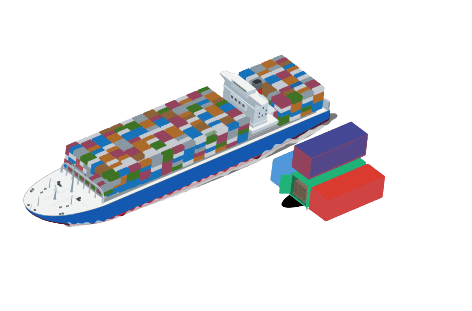For a successful export experience, it is essential that the exporter and the international trade professional pay attention to the bureaucratic aspects involved in the process. Among these aspects, the incidence of Export Tax stands out as an important factor to consider in ensuring success in international operations. In this article, we will explore in detail what export taxes are, how they are calculated, and which products are subject to this taxation.
Observation: this content is related to the brazilian context. Export Tax may vary according to your country/localization.
What Is Export Tax?
Export Tax, governed by Decree-Law No. 1,578/77, is a Brazilian tax whose taxable event occurs when goods leave the customs territory. This exit is recorded in the Single Export Declaration (DU-E), performed on the Single Foreign Trade Portal.
Unlike other taxes, whose primary function is revenue collection, Export Tax’s main objective is to monitor and regulate the flow of exports. Its basic legislation is found in articles 212 to 236 of the Customs Regulations, as well as in Secex Ordinance No. 23/2011.
How Is Export Tax Calculated?
According to the Brazilian IRS, the base for calculating Export Tax is the normal price that the product would achieve at the time of export in a sale under conditions of free competition in the international market. This definition is based on Article 2 of Decree-Law No. 1,578 of 1977.
The current rate of Export Tax is 30%. However, the Foreign Trade Chamber (Camex) has the authority to reduce or increase this rate, as long as it does not exceed 150%.
To illustrate the calculation of Export Tax, let’s look at an example:
Calculation Example:
Total value of the goods at the loading location: R$ 100,000
Export Tax rate: 9%
Amount to be paid via DARF (Federal Revenue Collection Document): R$ 100,000 x 9% = R$ 9,000
Products Subject to Export Tax
In Brazil, most exported products are exempt from Export Tax. However, there are exceptions, and certain products are subject to taxation. Some examples include:
Tobacco-containing cigarettes: According to NCM 2402.20.00, the export of cigarettes containing tobacco is subject to a 150% Export Tax when destined for South American and Central American countries, including the Caribbean.
Firearms and ammunition, their parts, and accessories: Exports of these products, as per chapter 93 of the NCM, are subject to a 150% Export Tax when destined for South American countries (excluding Argentina, Chile, and Ecuador) and Central American countries, including the Caribbean.
It is important to note that the list of products subject to Export Tax may vary according to legislative updates and guidelines from the Brazilian IRS.
Simplifying Export with Specialized Assistance
Given the complexity of tax and customs legislation, it is highly recommended to use specialized services during the export process. Accounting and customs clearance professionals have extensive technical knowledge to handle the bureaucratic aspects, ensuring that all payments and processes are carried out properly and in accordance with current legislation.
By partnering with these experts, exporters can focus on their core business, ensuring an efficient export operation free from tax complications.
Conclusion
Export taxes are an important part of the international trade journey and should be handled with attention and care to ensure a successful export. By understanding what Export Tax is and how it is calculated, exporters can adequately prepare to fulfill their legal obligations and avoid bureaucratic problems.
Seeking the assistance of specialized professionals is a smart choice to simplify the export process and ensure compliance with government regulations. This way, companies can expand their horizons and take advantage of international trade opportunities more efficiently and securely.
What is Cheap2Ship?
Get to know Cheap2Ship, a technology company specializing in logistics and international trade. Through our advanced freight management and quoting platform, medium and large companies have experienced a significant increase in operational efficiency and a reduction in logistics costs.
Our commitment is to provide greater transparency in costs related to current freight providers, such as shipowners, cargo agents, and carriers. With this, our clients can make more informed and strategic decisions for their businesses.
To learn more about our innovative solutions, visit our website and follow us on social media. There, you will find relevant content about international trade, logistics, and supply chain. We are ready to drive your company’s success in the global market. Join us and discover how we can make a difference for your business.

